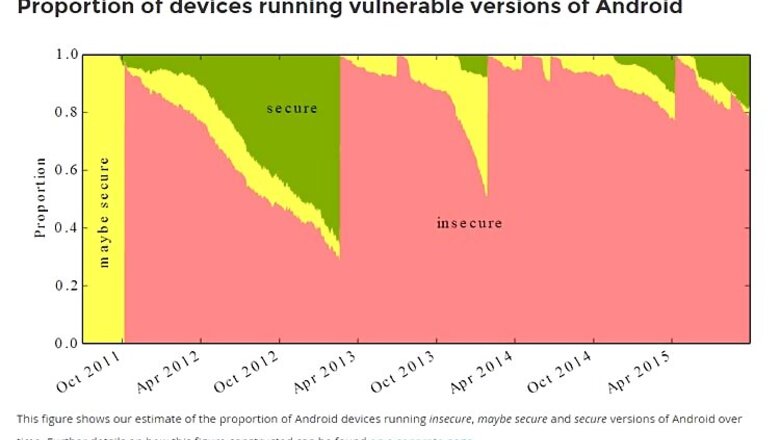
views
New Delhi: While it is true that a major portion of smartphone users run Google’s popular Android platform, it also holds true that a large section of the Android market is vulnerable to old security bugs, a new study that has been partially funded by Google itself has revealed.
An astounding 87 per cent of Android devices are prone to at least one critical security flaw because Android handset makers fail to deliver patches.
The research by the University of Cambridge and funded partly by the Internet search giant, has found that although Google develops regular patch for its Android security loopholes, consumers, regulators, and corporate buyers don’t know which vendor will supply those patches.
The researchers, Daniel Thomas, Alastair Beresford, and Andrew Rice, opine that “The market for Android security today is like the market for lemons. There is information asymmetry between the manufacturer, who knows whether the device is currently secure and will receive security updates, and the customer, who does not,” ZDnet notes.
They analysed over 20,000 Android devices with the Device Analyser app and found that 87 per cent of Android devices were vulnerable to at least one of 11 bugs in the public domain in the past five years, including TowelRoot issue, which Cyanogen fixed last year, and FakeID.
The researchers also found that Android devices on average receive 1.26 updates per year.
The study further revealed that Google, LG, and Motorola far outperformed Samsung, HTC, and Asus in patching efforts.
By quantifying the problem with Android devices, the researchers hope to “help people when choosing a phone and that this in turn will provide an incentive for manufacturers and operators to deliver updates."


















Comments
0 comment